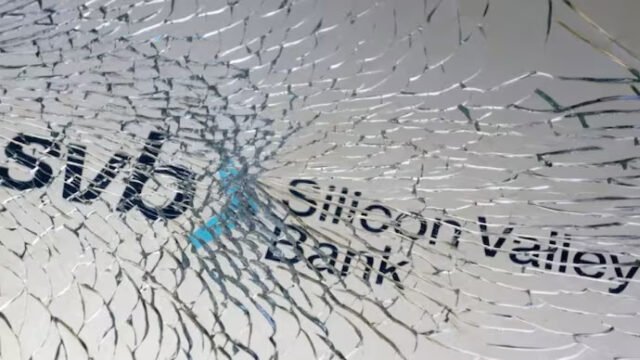Silicon Valley Bank’s Collapses leaves Indian Startups in worry
The bank disclosed the sale of assets, leading to its collapse in just 48 hours, Read to know why it collapsed and how it is related to the infamous controversy of Adani!
Silicon Valley Bank, a commercial bank catering to the technology and innovation industries, has a strong presence in Silicon Valley and other key innovation hubs globally. It offers financial services to high-growth companies, including banking, lending, and investment services. However, the bank has recently experienced a significant setback, as it was closed by the California Department of Financial Protection and Innovation, making it the second-largest bank failure in US history. With $209 billion in assets and over $175 billion in deposits, its closure could have severe consequences for technology startups, including those in India, and raises several key questions.
It appears that Indian SaaS startups will bear the brunt of Silicon Valley Bank’s recent closure. While the exact number of Indian startups holding accounts with SVB is unknown, a significant proportion of Indian software-as-a-service (SaaS) companies have a US presence, with many banking with SVB. This is because some SaaS firms operate from India but want to serve global markets and present themselves as US-based entities. Additionally, Silicon Valley Bank was a popular choice for Indian companies that shifted their headquarters to the US. According to a partner at a top venture fund, almost all Indian SaaS startups with a substantial US presence had their accounts with SVB.
But why did SVB Collapsed?
SVB attracted a significant amount of deposits from tech companies using it to hold cash for payroll and other expenses. The bank invested a considerable portion of these deposits, which is typical for banks. However, the bank’s downfall began when it heavily invested in long-term US government bonds, which are considered very safe. Unfortunately, bonds have an inverse relationship with interest rates, and when rates rose, the bond prices fell.
As a result, SVB’s bond portfolio lost significant value when the Federal Reserve rapidly increased interest rates to fight inflation. Though SVB would have received its capital back if it held those bonds until maturity, many customers began drawing on their deposits due to poor economic conditions, leading to a lack of cash on hand. Consequently, SVB began selling bonds at steep losses, which frightened investors and customers. The bank disclosed the sale of assets, leading to its collapse in just 48 hours.
The closure of Silicon Valley Bank could result in significant job losses, with an estimated 100,000 workers at risk of layoffs. In response to this threat, Y Combinator has drafted a petition urging US Treasury Secretary Janet Yellen and others to prevent any further financial shocks that could trigger a crisis.
The National Venture Capital Association has reported that the bank holds over 37,000 small businesses with more than $250,000 in deposits, meaning many will not have sufficient funds to cover their payrolls in the next 30 days. This could lead to shutdowns, affecting over 10,000 small businesses and startups, according to Garry Tan, CEO and President of Y Combinator.
But Amid SVB collapse, Why Indian Keyboard warriors criticize Hindenburg over Adani?
Hindenburg Research is an investment research firm that conducts due diligence on publicly traded companies. The firm has exposed several high-profile instances of corporate wrongdoing and is well known for its vehement reports on businesses it feels are engaging in dishonest or unethical practices.
But Hindenburg, which had earlier accused Gautam Adani of committing the “biggest fraud in corporate history,” has endured criticism in the area as a result of this report. Others have argued that Hindenburg failed to recognise the issues in the SVB case.
“When covering an Indian company, the second-largest bank in their own nation crashed. I suppose they don’t report on true events. That’s what KARMA is”, according to Surindar Singh Bisht of the BJP.
Sunil Minglani, a veteran of the stock market, stated that Hindenburg should have concentrated on the word “S” rather than the letter “A.”
Adani Company has paid back all of its debts (on share collateral), whereas Silicon Valley Bank has failed, according to a verified user with the handle @vikrantkumar. Adani was classified as a scam by Hindenburg Research, whereas SVB received no such classification.
The collapse of SVB serves as a stark reminder of the need for vigilant risk management and effective regulatory oversight to prevent similar financial catastrophes in the future.
Source : Live Mint
